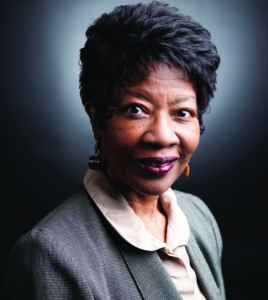There is no greater indicator of racial inequity than the gap in wealth between Black and white Americans. From 2010 to 2020, Black full-time workers between the ages of 25 and 34 made an average of $39,820, compared to $52,750 for white workers. Additionally, the total assets of Black households averaged $206,966 compared to white households, whose total average was $1,101,412.
Despite the systemic barriers to building wealth and attaining economic mobility in the U.S., the Black community has consistently embraced a philosophy and habit of giving in monetary and non-monetary ways. Black households give 25% more of their income annually than white households. Nearly two-thirds of African-American households donate to organizations and causes, totaling $11 billion each year.
Perhaps Black philanthropy is a response to the collective understanding of barriers that have existed over centuries, underscored by a deep sense of accountability to and a deep love of community. Even so, most African Americans discount their roles as donors, despite the fact that they may have a life-long history of giving their time, talent, and treasures in many ways.
Acknowledging this, it’s time to shift the narrative about what “counts” as philanthropy and elevate examples of Black wealth-building for a new generation. Below we talk with Myra Donovan about what philanthropy means to her and why others should give.
 Myra Donovan offers strategic guidance in wealth-building and philanthropy
Myra Donovan offers strategic guidance in wealth-building and philanthropy
Long-time financial planner and The Denver Foundation board member Myra Donovan came into The Denver Foundation community as a member of the Professional Advisors Council, which helped her learn more about tools she could share with her clients to help them manage their philanthropic giving.
Myra said the main obstacle she ran into was talking with her clients about how to leave money to organizations that would align with their donor intent. She learned that “the foundation could step in and be a doorkeeper for the dollars and provide accountability for planned giving.”
While helping clients with their philanthropic goals, Myra admits she wondered how to help middle America give in the ways best for them. “Most of us feel like we can’t give a whole lot during our lifetimes,” Myra shares. “I’ve been very happy that the foundation has evolved over the years to engage main street folks, helping them make the most impact while alive. Giving circles are one great example,” she adds.
The Denver Foundation has many giving circles and affinity groups, which are ways to connect individuals who donate their money to pooled funds and then decide together which nonprofit organizations or community projects to support.
Myra says, “So many people in our community operate with a scarcity mindset.” That’s why she commits so much time to financial education. “My philosophy has been, let’s start where you are. It’s not about how much you make, it’s what you do with what you make. Allow your money to work as hard as you do.”
To spread this message, Myra has partnered with Walter Huff, a Black realtor, and several others including estate planners and attorneys, like Michelle Adams and Taylor Hunt. Together they conduct financial workshops in Black churches across the Metro region. Topics have included savings, taxes, mortgages, and investments.
To learn more about how we can help you optimize your philanthropic impact, contact a member of the Engaged Philanthropy Team by calling 303.300.1790, or emailing information@denverfoundation.org.
To learn more about giving circles, visit denverfoundation.org/donor-services/collective-giving.
